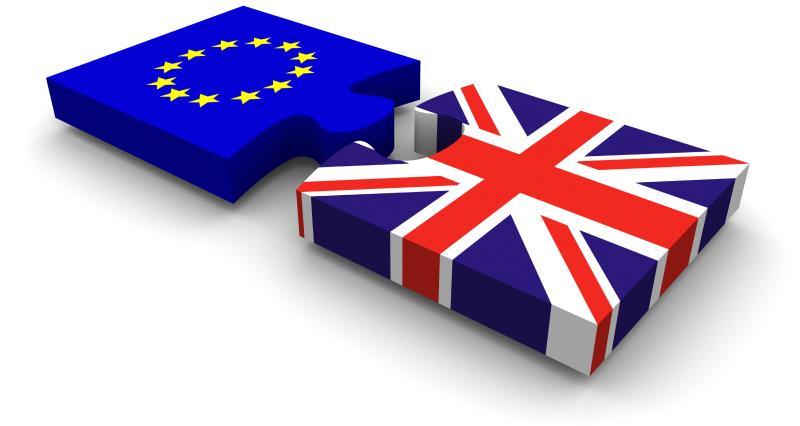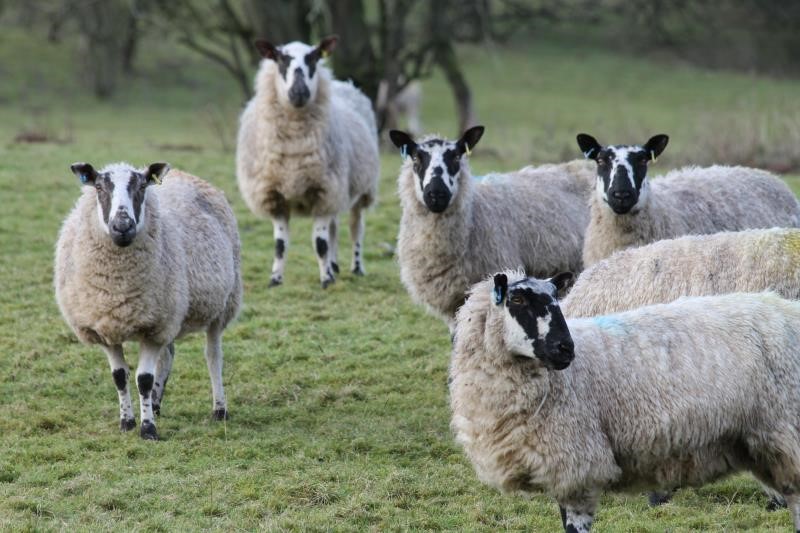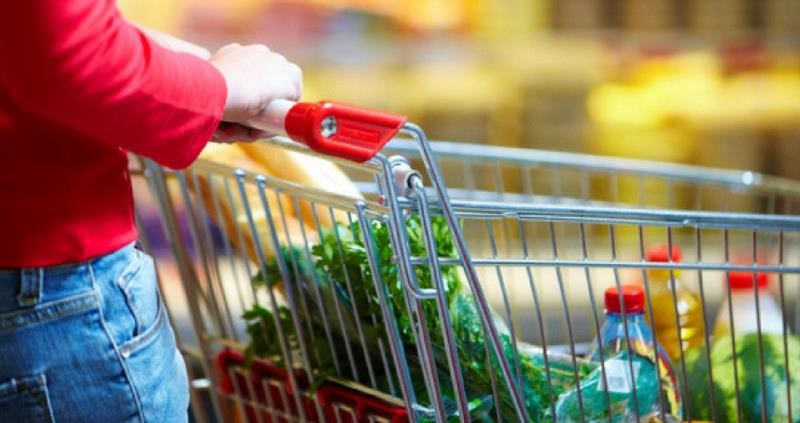Why is trade with the EU important to UK farmers?
More than 60% of UK agri-food exports go to the EU, which is worth £14.5 billion to the national economy, making it British farming’s largest trading partner. It is worth more than six times that of our next largest trading partner – the USA (worth £2.2 billion).
Reaching a deal with the EU is critical to maintaining those trade links and ensuring that British farming can continue to deliver the same safe, quality, affordable food for both a domestic and EU market.
What are some of the main products we export and how much?
The UK currently exports £14.5 billion worth of food and drink to the EU (Wales's exports total £426 million). This includes:
- Lamb: The UK currently exports 34% of its lamb production. Of that 94% goes to the EU, worth £377 million in 2019.
- Beef: The UK currently exports around 18% of its beef production. Of these exports, 84% goes to the EU, worth £404 million in 2019.
- Dairy: The UK currently exports 7% of its dairy production, including milk, cheese, cream, butter and milk powder. Of these exports, 80% goes to the EU, worth £1.3billion in 2019.
- Poultry: The UK exports 19% of its total volume of poultry produced. 70% of UK exports go to the EU, worth £192 million in 2019.
- Barley: The UK currently exports around 22% of its total barley production. Of that, 88% is exported to the EU, worth £230 million in 2019.
How would no-deal with the EU impact UK farming?
If we fail to reach a deal with the EU by the end of the transition period, farmers would lose free access to their largest trading partner overnight. Tariffs (taxes), which are high in the agri-food sector, would be imposed on any UK producer wanting to export to the EU.
These costs are paid by the importer. They will either be added to the price of the product paid by the consumer or the purchaser of the goods, which means UK products exported to the EU will become more expensive and potentially be outpriced by cheaper products, or ultimately these costs will come off UK farmers’ bottom line in order to maintain sales. This would place considerable strain on the viability of certain sectors which are heavily geared towards the EU market, and potentially lead to unsustainable farming sectors in the UK.
What tariffs would be imposed in a no-deal situation?
Overall, UK producers would face a new costs equivalent to around £1.36bn on exports to the EU. This includes tariffs of up to:
62% for lamb
85% for beef
44% cheddar cheese
192% fresh poultry meat
51% barley
How will certain farming sectors be impacted by no-deal?
Livestock:
Tariffs are very high in the livestock sector and we would quickly lose our position in the EU market if they are imposed on our exports. 95% of the UK’s lamb exports go to the EU, so losing access to this market overnight would have severe consequences and the price paid to sheep farmers could drop by about 25%.
Farmgate prices are supported by our ability to trade different cuts of meat and by-products, as there are some cuts of meat that simply sell better on the EU market compared to the domestic market. As outlined above, if we were faced with export tariffs, European customers (facing potentially higher prices) could be less willing to buy UK products as they would be too expensive, and so could look to source products from elsewhere in the world. It could take many years to re-establish these markets and we would struggle to replace them with other world markets.
The likelihood is this would lead to an oversupply on the domestic market, resulting negatively on the prices farmers receive.
At the time of writing, we are also concerned that the UK is not yet authorised to sell beef, lamb, dairy, pork and other products of animal origin to the EU. And even if we do get authorised, there will be greater checks and costs on exporting meat to the EU.
Crops:
There would be limited opportunity for UK grain exports to compete with other global players. There are some limited quotas (see glossary for more info on quotas) that would be available to the UK, but we would be competing with other major grain producing nations for space. Exports of malting barley and feed barley to the EU are very important for the sector, as well as exports of malt and flour.
Poultry:
UK consumers’ demand is focused on breast meat. To produce enough breast meat to satisfy that demand, we need to send the rest of the bird that is less in demand (for example wings and legs, known as dark meat) overseas. The tariffs on this type of product into the EU is very high and would curtail this trade, meaning the farmer would receive a lower price for the overall bird than before.
Dairy:
80% of UK dairy exports go to the EU. Cheese is the most significant export product for the UK dairy sector with cheddar cheese exports to the EU worth £215 million per year. The UK is proud of its many speciality cheeses produced here and this growing trade is very valuable to local cheese producers across the country. The UK also exports cream and short life dairy products to the EU, which is important for balancing the UK milk market. If this trade is disrupted, it could have significant impacts on the price farmers are paid for their milk.
Horticulture:
The UK is reliant on imports of many young plants for fruit, veg and ornamental production, and those fruits and vegetables that we aren’t able to grow here. However, the UK sector is taking great strides in increasing self-sufficiency through innovation. A key concern for the horticulture sector is increased border friction on the imports of young plants and fresh produce, with increased documentary and inspection requirements, as well as the potential added costs of tariffs.
Potatoes:
The EU prohibits the import of seed and ware (ready to eat) potatoes from third countries (see glossary for more info on third countries) and requires third country equivalence for seed potatoes.
At the time of writing, the UK’s application for authorisation to export seed and ware potatoes to the EU has not yet been approved. Without this authorisation seed and ware potatoes will not be able to be exported to the EU, removing access to an important market. The UK will allow the import of EU seed potatoes until 1 July 2021; after this date, unless equivalency has been granted, the UK will apply a similar prohibition to EU seed potato imports, which could prevent growers importing some specific varieties and so causing disruption in the supply chain.
Will we see an immediate impact of no-deal on 1 January 2021?
While some farmers may experience immediate disruption from delays at borders, it is likely that those farmers whose products are exported to the EU will see sustained downward pressure on prices over a longer period of time, as the tariffs and costs of new procedures at the border take effect and exportable surpluses of food products build up. Economic modelling indicates that sheep prices could fall by a quarter in the event of a no-deal, which would be devastating for our sheep farmers who could see the impacts lasting years.
Won’t UK farmers be protected by reciprocal tariffs on imports from the EU?
As of 16 December, the government has now laid the necessary legislation to implement the UK Global Tariff (UKGT), which sets the tariffs that will apply to all imports coming into the UK outside of free trade agreements at the end of the transition period.
While the new import tariff regime will provide certainty for farmers by largely maintaining import tariffs at present levels (more or less replicating the current EU tariffs i.e. ‘reciprocal’ tariffs), it is crucial that the government sticks to these tariff rates should the UK fail to reach an agreement with the EU. This is especially important for domestically produced goods which would face very high tariff costs to export into the EU in a no-deal situation, or else producers may face the double whammy of being outpriced on the EU market and undercut on the UK market.
The NFU does have serious concerns about a 260,000 tonne tariff-free quota (see glossary for more info on tariff rate quotas) for raw cane sugar, which will be introduced regardless of the outcome of negotiations with the EU. This quota will undermine thousands of sugar beet growers in the UK and seriously jeopardise the viability of the home-grown crop.
What is the NFU asking for?
We need to see a free trade agreement that secures a tariff-free, quota-free deal reached as soon as possible.
In a no-deal situation, the government must ensure that reciprocal import tariffs are in place by honouring the UK Global Tariff announcement, which will provide certain safeguards to UK primary production. It would also push the EU to come back to the table to negotiate a trade agreement with the UK to maintain or re-establish the market access it currently enjoys.
Glossary
- Third country:
A third country refers to any country that is not a member state of the EU and sits outside its economic structures – the single market and the customs union – which the UK will be from 1 January 2021. Businesses in a third country have to fill in customs declarations and complex product rules known as SPS rules, for example, when they import from and export to the EU, whether there is a trade agreement or not.
- Third country listing:
The EU has a formal list of third countries that are approved for imports of live animals and products of animal origin (meat, dairy products, eggs etc) – that’s what third country listing means. If granted, it means that the EU is happy that the exporting country has met all the necessary EU standards for animal health and biosecurity. At the time of writing, this listing status has still not been granted to the UK.
- Tariff Rate Quotas (TRQs):
TRQs allow a zero-rate tariff on imports of a given product within a specified quantity. If imports exceed that quantity then a higher tariff rate will be imposed on those imports. Using the example of raw cane sugar under the UKGT, 260,000 tonnes of the product will be able to enter the UK market without bearing any costs from tariffs. Only after this quantity has been reached will tariffs be imposed on further imports.


